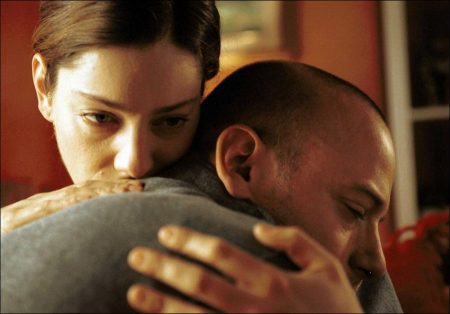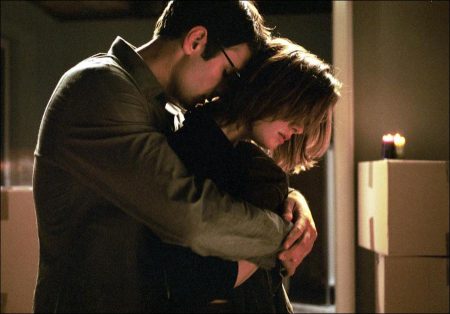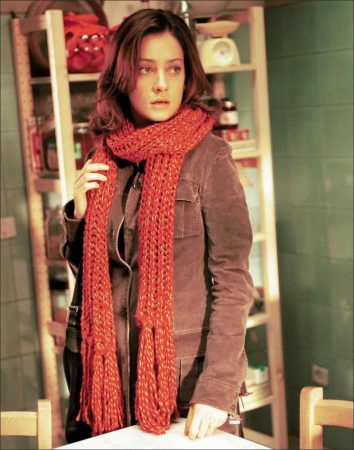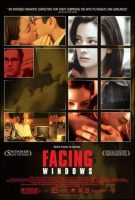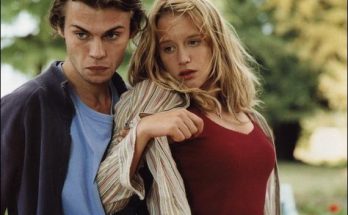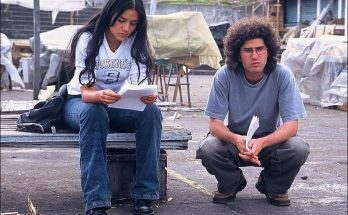Facing Windows Movie Trailer. We all find ourselves at a crossroads at certain times in our lives, moments where we can see two destinies in front of us that force us to reckon with not only what we want, but with what we have and what we have lost. For Giovanna, the young heroine of Ferzan Ozpetek’s Facing Windows (La Finestra di fronte), her crossroads will appear in the form of an aging man losing his memory desperately clinging to a difficult choice he made a lifetime ago.
Realistically compelling and magnificently rendered, Facing Windows has been winning awards and acclaim in countries around the world since its release earlier this year, culminating in four “David” Awards—the Italian equivalent of the Oscar—and a total of eleven nominations. A multi-layered story featuring three initially unrelated characters at the center, the inspiration was, for director Ozpetek, surprisingly simple.
“Once, I met an old man who had problems with his memory,” he explains, “and I spent many hours with him and learned a lot from his words.” This old man was the inspiration for Davide, stunningly portrayed by the late Massimo Girotti. But Davide’s story needed to resonate in a contemporary context. “It was also very important for me to tell something about the relationship between a young couple and the past,” explains the Turkish-born director. “Today’s young people don’t know much about the Second World War and what happened to the Jewish people.”
Thus, as Davide slowly pieces together the shattered fragments of his memory, he finds himself in the home of a working-class couple, Giovanna (Giovanna Mezzogiorno) and Filippo (Filippo Nigro), who live with their two young children in an apartment building that faces another apartment building. The contrast between the Italy of Davide’s youth is starkly contrasted by the busy, modern Rome of Giovanna.
She works as a poultry inspector while her husband works thusband is a good man and loves her children, Giovanna is clearly missing something in her life. She devotes precious time to baking pastries for a local pub, ostensibly to supplement her income. She’s also begun to find herself gazing out of her apartment windows into the home of a young man, Lorenzo (Raoul Bova), who always seems to be entertaining a beautiful woman.
The presence of Davide—who quickly becomes a burden on Giovanna, as at first he offers only mixed clues to his identity—eventually forces Giovanna to take stock of her life. Seemingly random events—Davide being found confused on a footbridge, Lorenzo passing by the pub where Giovanna sells her pastries—lead the heroine to grow more concerned about the history of the old stranger. Who is “Simone” whom he speaks of so lovingly in his letters? How did the man survive the concentration camps? Why does no one report him missing to the police? And how is it that he knows so much about making pastries?
As the answers about Davide and the events of his past begin to unfold, so, too does Giovanna’s perspective on her own quiet, normal life. When Lorenzo begins to help her with Davide, the connection between the two younger characters grows more intense. Knowing that Lorenzo is due to be transferred to another city shortly, Giovanna seriously begins to consider the possibility of a brief, passionate affair, hoping to rekindle a flame inside of her that she hadn’t even been aware was put out.
What soon becomes the burning question of Facing Windows is whether or not Giovanna, forced to make a choice about her life, will follow the same difficult path as Davide—always wondering what might have been if only a different choice had been made. “I think that throughout the ages, the feelings of people have always been the same,” says Ozpetek, reflecting on the similarities between the two stories.
Filming Facing Windows in 2002, Ozpetek cast Giovanna Mezzogiorno, the daughter of two famous performers with an impressive resume of her own, as Giovanna. For the key role of Davide, Ozpetek cast veteran Italian actor Massimo Girotti, who has appeared as a “handsome tough guy” in films for several decades and worked with some of the great Italian directors—Visconti, Rossellini, De Sica, and Bertolucci. In recent years, Girotti had taken on smaller roles in lower-profile films and television shows, but it is impossible to imagine any other actor in the part of Davide.
For much of the film, Davide is a confused amnesiac, a state that Girotti plays with subtle mastery and an understated, neutral quality that makes him compelling not only to the film audience but to the characters in the film as well. Beneath the confusion lies a quiet dignity and sense of loss that are reflected on Girotti’s distinguished, weathered face. “Massimo Girotti’s performance is perfect,”
Ozpetek declares. “Each expression of his face is really perfect. We spoke with many doctors about people who had problems with their memory, and Massimo understood exactly and acted in that way.” Girotti’s reserved, minimal style really pays off towards the end of the film, when Davide begins to regain his faculties. That quiet dignity transforms into an almost angry pride; his reawakened passion for a love sacrificed to history long ago emerges just in time to push Giovanna towards her own difficult decision.
The brilliant performances by Girotti and Mezzogiorno—and strong supporting work from Filippo Nigro and Raoul Bova (rapidly becoming one of Italy’s hottest exports, and on the tails of his smoky role opposite Diane Lane in UNDER THE TUSCAN SUN)—are at the center of Facing Windows. Unfortunately, Massimo Girotti passed away before the film was completed, and he never got the opportunity to see the finished work that would prove to be the great achievement of his career. When Facing Windows was released in Italy in April 2003, it was an instant hit with Italian critics and audiences. Girotti posthumously won the David Award for Best Actor—the only award nomination he ever received, a fitting tribute to a long and fruitful career.
Ultimately, Facing Windows is about how we find love and passion in our lives in the midst of chaos and disruption. For both Giovanna and Davide, history and fate provide them with a chance to make a difference, either in their own ordinary lives or in the lives of others. Both of them soon discover that the choice is not as clear-cut as it seems, and despite her tumultuous emotional journey, Giovanna finds herself at the end of the story in a place not too different from where she began.
But Ferzan Ozpetek believes that Giovanna has discovered something new, wherein we perhaps find the deepest and most powerful sentiment that Facing Windows has to offer: “I think what I would like the film to say to people, is first think about yourself. Before loving someone else, it is necessary to love ourselves—that is the secret.
Facing Windows (2004)
Finestra di Fronte
Directed by: Ferzan Özpetek
Starring: Giovanna Mezzogiorno, Raoul Bova, Massimo Girotti, Serra Yılmaz, Filippo Nigro, Maria Grazia Bon, Massimo Poggio, Ivan Bacchi, Chiara Andreis, Veronica Bruni
Screenplay by: Gianni Romoli, Ferzan Özpetek
Cinematography by: Gianfilippo Corticelli
Film Editing by: Patrizio Marone
Costume Design by: Catia Dottori
Art Direction by: Andrea Crisanti
Music by: Andrea Guerra
MPAA Rating: R for language and some sexuality.
Distributed by: Sony Pictures Classics
Release Date: February 28, 2003 (Italy), June 18, 2004 (USA)
Views: 157
